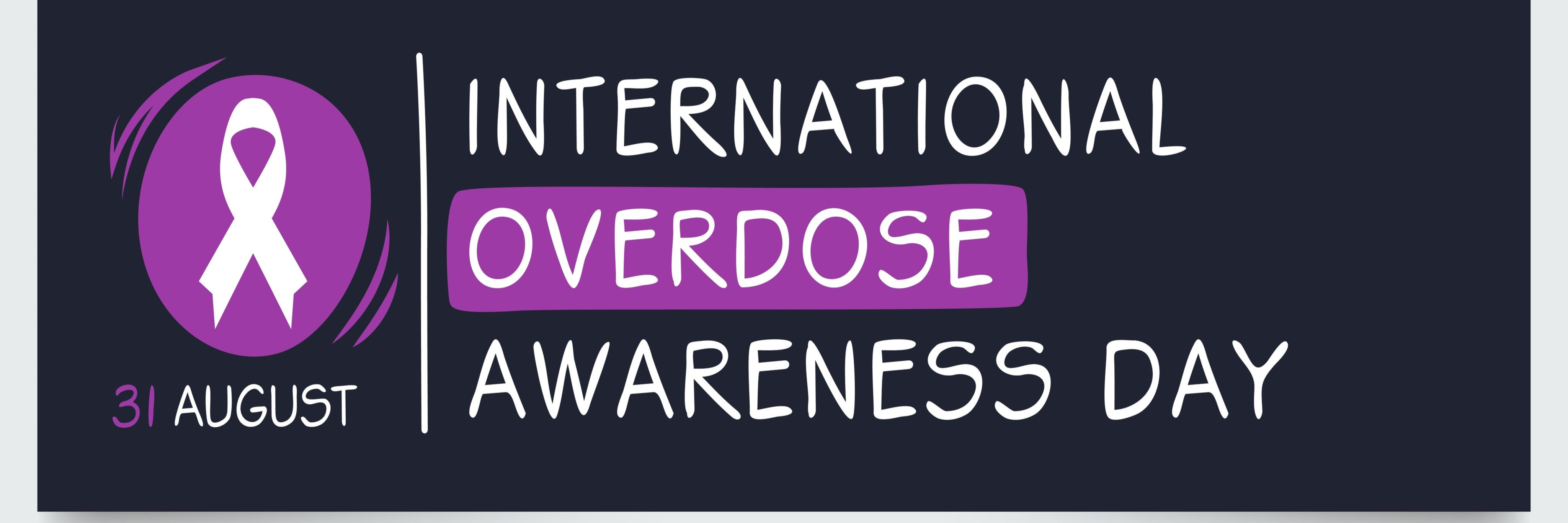
August 28 through September 3 is Overdose Awareness Week, a time to raise awareness of drug overdose, strengthen our efforts to prevent overdoses and substance-use related harms and deaths, and enhance our support for individuals with substance use disorders.
National Grief Awareness Day
On August 30 we observe National Grief Awareness Day which aims to “create space for loss” as well as engender conversations and awareness about the grieving process.
Nearly every person alive has been touched by grief in some way, and awareness about grieving, its effects, and ways to deal with it are the focus of this awareness day.
- The CDC offers resources on coping with grief, including grief caused by the COVID-19 pandemic.
- View MHTTC resources including factsheets, recorded webinars, and trainings surrounding grief, mental health, and recovery.

On August 31, we observe International Overdose Awareness Day, a campaign to end overdose and the stigma surrounding it, as well as to remember those who have died.
Resources:
- The Addiction Technology Transfer Center Network offers training, resources and technical assistance for professionals in the addictions treatment and recovery services field.
- The Prevention Technology Transfer Center Network provides training and technical assistance services to the substance misuse prevention field.
- The Center for Community-Engaged Drug Education, Epidemiology and Research (CEDEER) group at ADAI joins research with the “real-world” to generate innovative, evidence-based, and person-centered responses to the use of opioids, stimulants and other illicit substances.
- Find resources, ways to get involved and an overdose tribute page for International Overdose Awareness Day through the Pennington Institute.
- Visit the U.S. Department of Health & Human Services Overdose Prevention Strategy webpage to view statistics on the overdoes crisis and to access resources for prevention, harm reduction and recovery support.
- SAMHSA's Overdose Prevention & Naloxone Manual includes a toolkit, downloadable worksheets, and resources to help with developing an Overdose Prevention and Education Program, with or without a take-home naloxone component.
- SAMHSA's Opioid Overdose Prevention Toolkit offers strategies to health care providers, communities, and local governments for developing practices and policies to help prevent opioid-related overdoses and deaths.
- The Whole-Person Care for People Experiencing Homelessness and Opioid Use Disorder Toolkit from SAMHSA provides a framework for supporting recovery and housing stability. Part I of the toolkit, released in August 2021, provides an introduction to homelessness, opioid use disorder, and evidence-based recovery practices such as trauma-informed care, motivational interviewing, eliminating stigma, and harm reduction. A Spanish language version of this toolkit is also available.
- The CDC's Stop Overdose website offers information for people who use drugs about the dangers of illicitly manufactured fentanyl, the risks and consequences of mixing drugs, the lifesaving power of naloxone, and the importance of reducing stigma around recovery and treatment options. This website is also available in Spanish.
- The CDC’s Rx Awareness campaign tells the stories of people whose lives were impacted by prescription opioids.
- The National Association of County & City Health Officials offers a free Health Equity in the Response to Drug Overdose Training designed to guide local health practitioners in their integration of foundational health equity concepts and practices into their drug overdose prevention and response efforts.
- The National Institute of Health's Helping to End Addiction Long-Term (HEAL) Initiative seeks to improve prevention and treatment strategies for opioid misuse and addiction and to enhance pain management.
- Visit FindTreatment.gov to find substance use treatment and help for you or someone you know.
- Visit Learn About Treatment, a resource for the community, people with a substance use disorder and their friends and family, and healthcare providers to learn more about treatment.
MHTTC Products:
- Harm Reduction 101 - Hosted by the Northwest MHTTC in partnership with the Mental Health and Addiction Association of Oregon and Outside In, this recorded webinar provides an introduction to harm reduction principles.
- Opioids, Overdose and Naloxone Administration - Hosted by the Northwest MHTTC, this recorded webinar discusses how opioids and opiates work, how to recognize and respond to opioid and stimulant overdoses, and how to administer naloxone.
- Listening to Voices of Lived Experience in Recovery - Hosted by the Northwest MHTTC, this recorded webinar features a facilitated panel conversation among individuals in recovery from mental health and substance use challenges.
- Opioid Overdose Prevention - Hosted by the Northwest MHTTC in partnership with the Addictions, Drug & Alcohol Institute (ADAI) at the University of Washington, this recorded webinar discusses overdose prevention and awareness. Listen to the Podcast version here.
- Opioids, Overdose and Naloxone Administration - Hosted by the Northwest MHTTC, this podcast episode discusses opioids, mental health, and the importance of a harm reduction approach.

